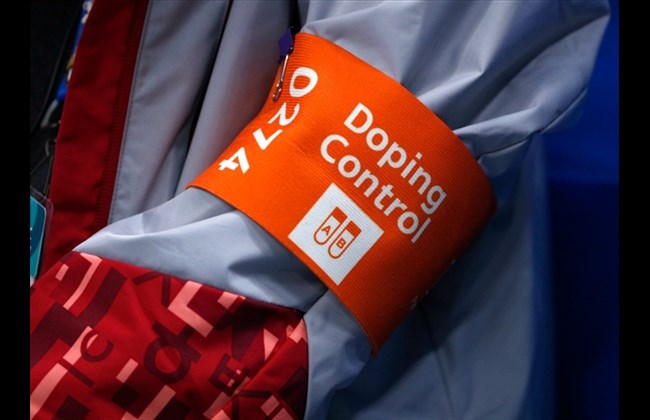
By Liam Morgan |
Athletes competing at the 2018 Winter Olympic Games in Pyeongchang had significant concerns over the effectiveness of the anti-doping program to catch drug cheats following the Russian doping scandal and pre-Games problems with the sample collection bottles, it has been revealed.
The World Anti-Doping Agency (WADA) Independent Observers report from the Games said suspicion around the doping control process was “highly manifested at the start of the event and residual suspicion by some athletes and teams lingered throughout the Games Period.”
The report added that the behaviour of some of the competitors who participated at Pyeongchang 2018 “revealed underlying feelings which included skepticism, doubt and fears” regarding the process following Russia’s “systematic manipulation” of the anti-doping results at the 2014 Games in Sochi.
It revealed that in “at least” two cases, athletes were so concerned about their samples being tampered with that they broke the bottles after screwing the lids too tightly.
“The trust in the system and the chain of custody of samples was challenged, and the impact of the Sochi experience could not be dissociated from the perceptions of the Olympic athletes toward anti-doping procedures,” the report stated.
“Athletes frequently questioned the integrity of the sample collection kits and the possibility of tampering.”
The integrity of the new-generation BEREG-KIT Geneva security bottles, made by Berlinger, was among the main concerns of athletes after it emerged before the Games began that they could be opened without leaving a trace.
An investigation was subsequently launched by WADA and Berlinger then announced their withdrawal in the medium term from the doping control business after further issues were reported.
“The discovery of this flaw, coupled with the echo given to it by a number of media reports, created an atmosphere of suspicion around the anti-doping program which prevailed until the end of the Games,” the report said.
The revelations surrounding the bottles led to “misinformation and suspicion,” which caused “some anxiety and often frustration with athletes” competing at the Games in the South Korean resort.
“The integrity of the sample collection kits and perceived vulnerabilities of the sample collection bottles were questioned by multiple athletes across multiple events,” the report stated.
The report said no specific issues with the bottles were found but the Independent Observers “witnessed several instances where athletes and/or their support personnel (mainly coaches and doctors), and even a few International Federation anti-doping delegates – raised concerns, sometimes aggressively, about the quality of the sample collection kits.”
“This tense atmosphere complicated the work of the doping control personnel considerably,” the report added.
Other issues raised by the report include confusion around the International Testing Agency (ITA) and the fact that the Games took place amid the transitional phase for the new anti-doping body.
The drug-testing umbrella group is not yet fully operational and the Independent Observers said a “significant risk existed considering that specific roles and responsibilities remained largely undefined just a few weeks out from the start of the Games.”
A lack of clarity and co-ordination between the Global Associations of International Sports Federations, the Doping Free Sport Unit and the Organizing Committee in the early stages of the event was cited by the report.
One of the recommendations made called on the International Olympic Committee (IOC) and the ITA to “fully clarify each party’s roles and responsibilities for the next Olympic Games.”
The report also claimed there was not a sufficient “active and advertised mechanism for athletes, athlete support personnel or others to report possible doping or suspicious behavior.”
It said that WADA’s “SpeakUp!” initiative, a whistleblower program which allows athletes and others to inform the organization of suspicious behavior, could have been used more.
The Independent Observers report said, however, that they were satisfied overall with the anti-doping operation at Pyeongchang 2018 “despite a number of issues and challenges” and that the difficulties which they highlighted were largely dealt with.
It is far more positive than the damning equivalent report which criticized the sample collection process at the Rio 2016 Summer Olympics two years ago.
The WADA Independent Observers team were also criticized for failing to spot many of the problems at Sochi 2014, although their remit at the time did not include the security of the anti-doping program.
“Like most Olympic Games, Pyeongchang 2018 presented some unique challenges and opportunities from a doping control perspective,” Independent Observers team chairman Ben McDevitt said.
“These were the first Winter Olympic Games since the revelations of institutionalized manipulation of the doping control process at Sochi 2014.
“The IO team was impressed by the open and active engagement we received on the ground from anti-doping stakeholders including the IOC and the Organizing Committee.
“Notwithstanding a number of issues and challenges highlighted in the report, the IO team was generally satisfied with the end-to-end doping control arrangements put in place for the Games and congratulates all concerned on the considerable investments, efforts and opportunities that were seized upon to protect clean sport.”
The full report can be read here.
Republished with permission from insidethegames.biz.